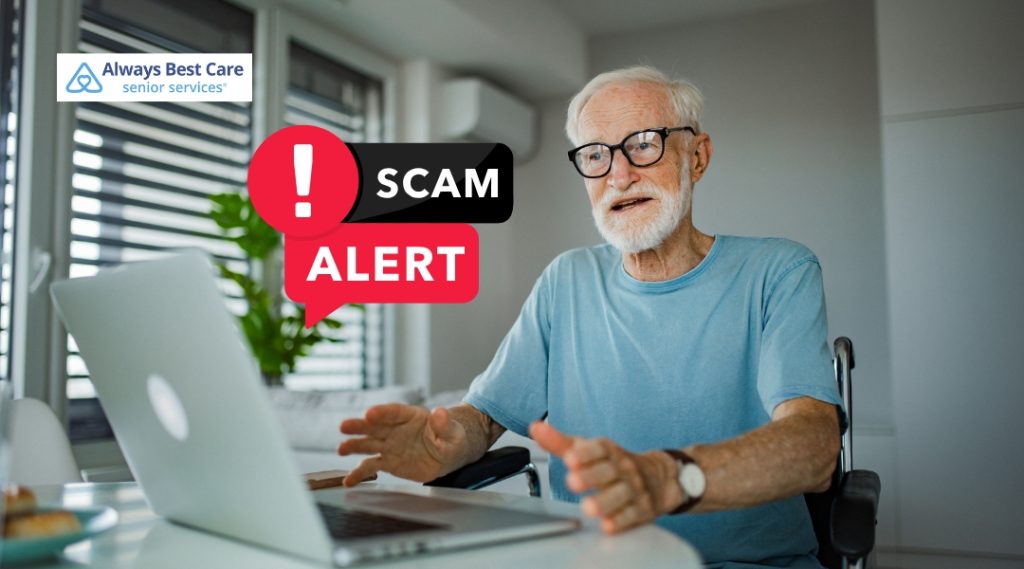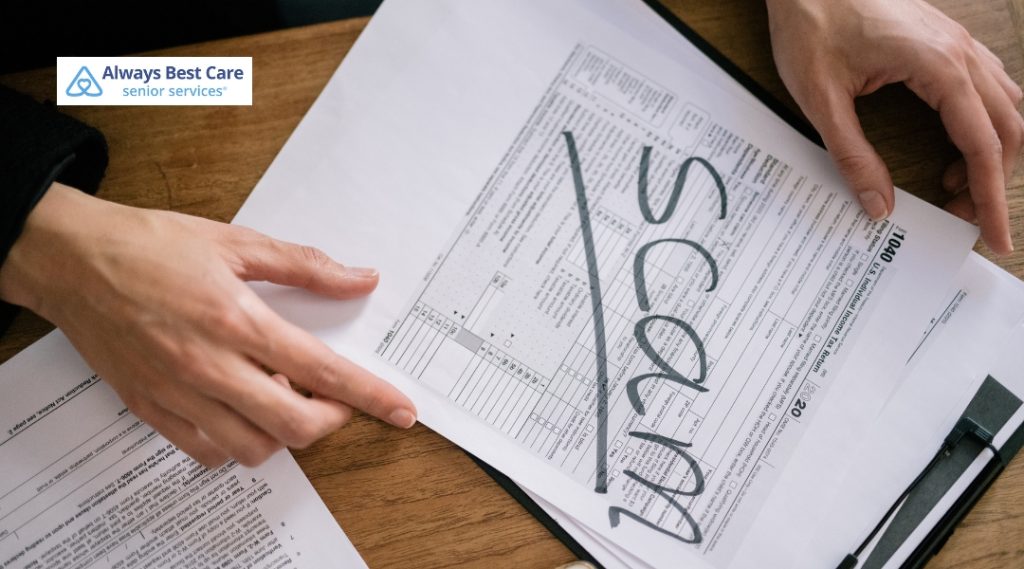Stay Safe: How Seniors Can Spot and Avoid Scams in Charleston, SC

Charleston’s charm, close-knit community, and rich history make it a wonderful place to enjoy retirement—but like many places across the country, it’s not immune to scams targeting seniors.
Unfortunately, seniors are often seen as easy targets by fraudsters looking to exploit their trust and generosity. These scams can come in many forms, from fake phone calls and suspicious emails to more elaborate schemes involving health care, finances, and romance.
Knowledge is power—and being informed is the first step to staying protected. We’ll explore the most common scams affecting seniors in Charleston, the warning signs to watch for, and simple, effective ways to stay one step ahead.
Whether you’re a senior yourself, a caregiver, or a concerned loved one, the tips and tools shared here can help you stay safe and confident in the face of today’s most common frauds.
Table of Contents
Why Seniors are Prime Targets for Scams
Scammers often view seniors as ideal targets for a variety of reasons, making seniors more vulnerable to fraud than other age groups. Many seniors have built up savings, own their homes, and maintain good credit—factors that can make them especially attractive to criminals seeking financial gain. Seniors may be more trusting, polite, or unfamiliar with the latest digital threats, which skilled scammers can exploit.
Isolation is another significant factor. Seniors living alone or with limited social interaction may be likelier to engage with strangers over the phone or online, making them easy prey for scammers who create emotional connections or fabricate emergencies. Cognitive decline can also play a role, making it harder to recognize suspicious behavior or recall whether certain information has already been shared.
Moreover, some scams are designed to appeal to seniors’ specific needs and concerns, such as health care, retirement benefits, or helping family members in need. These personalized approaches can seem convincing and urgent, increasing the likelihood that a senior will fall for the scam.

5 Common Scams Reported in Charleston
Fake Charity Calls and Disaster Relief Scams
Charleston’s coastal location makes it a frequent target for hurricane-related scams. Fraudsters often pose as relief organizations following storms or other disasters, soliciting donations that never reach those in need. These scammers may call or go door-to-door, playing on residents’ compassion to steal money under the guise of helping others. Seniors are especially at risk, as they’re often more inclined to give generously and quickly during a crisis.
Social Security and Medicare Fraud
Impersonating officials from the Social Security Administration or Medicare, scammers contact seniors claiming issues with their benefits, threatening suspension or arrest unless immediate action is taken. These fraudsters aim to steal personal information such as Social Security numbers or banking details, often under the pretense of “fixing” a problem that doesn’t exist.
Online Shopping and Package Delivery Scams
With the rise in online shopping, seniors are increasingly being targeted by fake shipping notifications or fraudulent retailers. Scammers send texts or emails claiming a package couldn’t be delivered, prompting the recipient to click a link or enter personal information. In other cases, they lure shoppers with fake websites offering too-good-to-be-true deals that result in stolen credit card information or never-delivered products.
Romance and Friendship Scams
Seniors experiencing loneliness are especially vulnerable to romance scams, which often begin on social media or dating sites. Scammers create fake profiles to build emotional connections over time, eventually asking for money for emergencies, travel, or family needs. Even friendships formed online can be exploited, with fraudsters using trust to manipulate and defraud their victims.
Home Repair and Hurricane Prep Scams
Charleston residents frequently report scams involving unlicensed contractors who appear after storms, offering urgent repairs or hurricane preparation services. These scammers often demand payment upfront and either disappear or perform substandard work. Seniors looking to protect their homes may fall victim to these cons in their effort to act quickly and responsibly.

Spotting a Scam Before It’s Too Late
Staying one step ahead of scammers starts with awareness and simple, consistent habits.
Practicing safe online behavior—like using strong, unique passwords and avoiding suspicious links—can significantly reduce the risk of fraud. Seniors should also feel empowered to hang up on suspicious calls, delete questionable emails, or leave any interaction that feels off. Trust your instincts.
Another powerful tool is communication. Talking openly with trusted family members, friends, or caregivers about odd messages, phone calls, or offers can provide early warning signs and an added layer of protection. The more connected and informed seniors are, the harder it is for scammers to find an easy target.
Charleston-Area Resources for Scam Prevention
Charleston seniors have access to various local resources to protect them from scams. The South Carolina Department of Consumer Affairs offers education, support, and reporting tools tailored to senior-related fraud. The Charleston Police Department also provides valuable fraud prevention tips and frequently updates the community on emerging scams.
Senior advocacy organizations throughout the Lowcountry share community alerts and host workshops to keep seniors and their caregivers informed and prepared. Taking advantage of these resources can build confidence and strengthen defenses against potential threats.

Steps to Take If You’ve Been Scammed
If you think you’ve been the victim of a scam, it’s essential to act quickly but calmly.
The first step is to report the incident to the proper authorities—this might include local police, your bank, or federal agencies like the FTC.
Charleston also has resources offering free legal and financial guidance for seniors, helping you navigate the aftermath of fraud and potentially recover losses.
Most importantly, don’t be afraid or ashamed to speak up. Scams can happen to anyone, and taking steps to protect yourself moving forward—such as changing passwords, monitoring accounts, and staying educated—can help ensure it doesn’t happen again.
How In-Home Care in Charleston Can Provide Added Protection!
An in-home caregiver can provide valuable assistance in identifying and preventing scams. Caregivers can help seniors manage mail, screen phone calls, and recognize suspicious messages. They also provide companionship and emotional support, making seniors less likely to engage with scammers out of loneliness or confusion.
At Always Best Care of Charleston, we are dedicated to ensuring the safety and well-being of seniors. Our compassionate caregivers provide daily assistance, companionship, and guidance to help protect against fraud.
Contact Always Best Care of Charleston at (843) 996-4498 to learn more and schedule your free consultation. Stay informed, stay alert, and stay safe.





